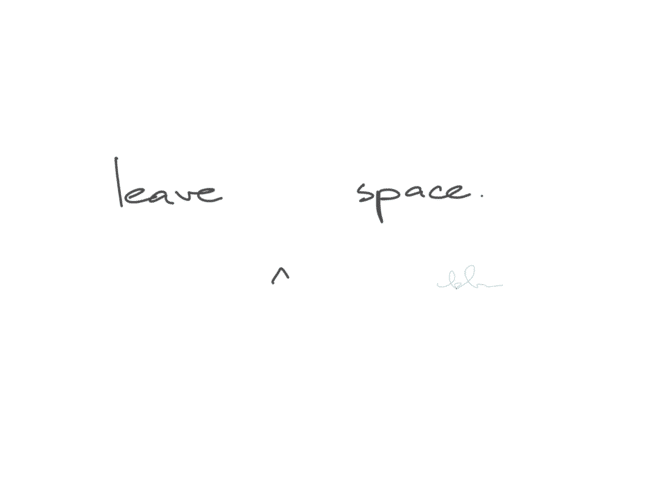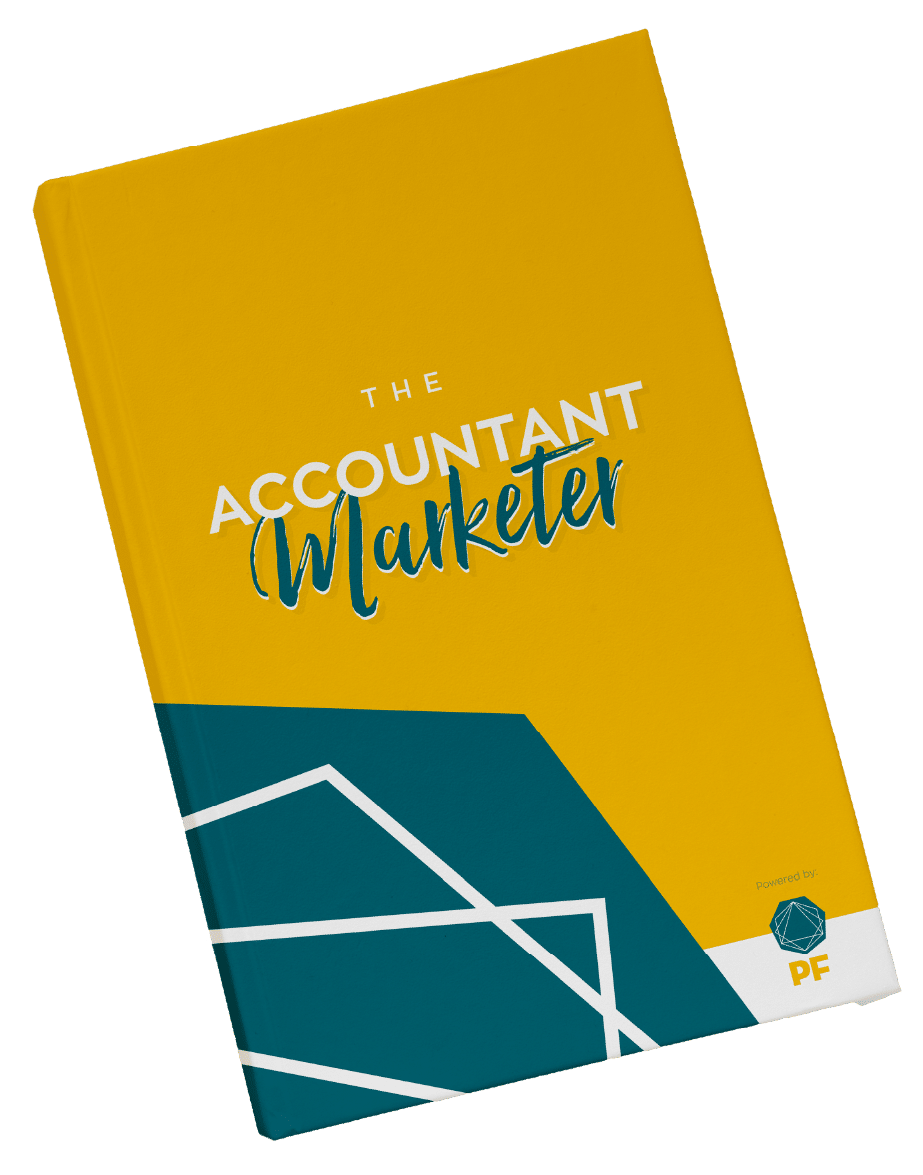We had a training session at PF this week on using more “definitive language”. Examples included “We believe” or “I get it” or “This works because…”
You use them in place of vague, rambly language. The kind which expresses uncertainty:
“I think”
“I”m not sure if that’s the best”
“Here’s what worries me”
“Just”
“Sort of / kind of”
We worked through the definitive language together, and in the process discovered a bonus way to be definitive, authoritative, and strong:
Silence.
Leave space.
When you present a quote with a price, you don’t rush to fill the gap and explain why it’s a good price and how it will benefit them. You quote it, and leave them space to think for a moment.
When someone shares a hard thing, you find yourself thinking (or saying) “I’m not sure what to say”. You can leave space after that and actually say nothing for a little while.
We discussed in the team training how we imagine silences to be awkward.
Silences are only awkward if you make them so.
You are only in charge of you. If a situation or a silence is awkward, you’re the one feeling that. You get to be in charge of whether it feels awkward or not – to you. If you’re going out and you know you’re going to run into an ex, or someone who stopped talking to you, it’s tempting to frame that ahead of time. “Well this is going to be awkward.” But it doesn’t have to be.
You can decide – ahead of time, or in the moment – to say a lot or a little. If they make a joke you don’t find funny, you can decide whether to laugh or to simply look at them.
In my wedding photographer days, I was at a wedding reception and the speeches were beginning. Most of them were beautiful, some a little silly, but all enjoyable and fitting to the moment. Then the best man got up and started his speech, and it was evident within moments this was not going to go well. He’d had a few drinks, was struggling to find his words, and the jokes were falling a bit flat. And then he came out with a joke which raised not a few eyebrows. I think my mouth fell open (and I’ve heard a lot of jokes at weddings in my time). It was one of those where everyone glances around going “Oh my word…there are KIDS HERE.” Following this disastrous joke, he fortunately realised he needed to stop. Unfortunately for him, the next item on the agenda was to ask the minister to give thanks for the meal.
The minister got up, and the vibe in the room was definitely awkward. Everyone wanted to laugh uncomfortably, or run out of the room, or roll their eyes, or maybe get a strong black coffee for the best man. But the minister was standing, and we all were bowing our heads, and those heads weren’t thinking about grace for the meal, or thankfulness, or the wedding. We all felt incredibly awkward. And then the silence began to stretch on. The minister wasn’t giving thanks yet – he was simply standing, quietly, waiting.
He wasn’t uncomfortable. He wasn’t awkward. He knew the feeling in the room didn’t fit with the occasion, and he also knew we were all there to celebrate the bride and groom. So he left silence. He left space.
And when he said “Let us pray”, we did that. We felt the calm, and the grace, and the reason we were there. I don’t remember what was said in the prayer – something about the bride and groom, and the beautiful occasion, and gratitude, and good things. And when he said the amen, and sat down, we all calmly went on to our meal and enjoyed it. There were a few comments and laughs about the speech, but the silence had passed it by. We’d moved into a new space. We weren’t in the old awkward one anymore.
You don’t have to fill space with words. You don’t have to explain, and then explain again in different words, and then explain further because the other person isn’t talking.
Silence leaves room. And we need it.
The most authoritative, decisive, calm people I know leave room for silence. My dad was an absolute master in the art of silence. He’d be talking with someone and they’d say something vulnerable, or angry, or direct. He’d listen, and nod, and wait. He would leave space. And almost without fail the other person would fill that space eventually with more. Their anger would turn to grief, and they’d explain where it came from. Their vulnerability would go deeper. They’d add more to their direct statement which helped explain where it came from.
My dad often left space because HE needed time to think. He wasn’t an instant-responder (like me). His space was for himself, but it helped the other person, too. And he wasn’t awkward with it, so they weren’t either. And because he left space, things were said which would have been left stuffed down, ignored, not recognised. We don’t fully know what we’re thinking or where that statement came from until we have a moment (or several moments) to discover it.
When silence comes (especially in Zoom meetings or phone calls), we rush to fill them. We imagine what the other person is thinking and act as if our imagined story is real. “They’re thinking that was a stupid thing to say.” “They’re thinking I don’t know what I’m doing.” The imagined story becomes reality, so we rush in to fix something which doesn’t need to be fixed.
All of us will find this more or less comfortable depending on our personality. I’m a talker. A rambler. I say lots of words until I figure out what it is I’m really trying to say. I do it in my writing, rambling on the keyboard. I do it on video, starting with one point and bringing in ten others. I do it in conversation, leaping from topic to topic and returning back again in circles.
That’s okay. Whatever style of speaking you have is okay. If you feel uncomfortable with silence, it’s going to take some practice. When you leave space for silence, you are not going to feel great about this straight away. You’ll feel like the room did in that wedding: embarrassed, restless, awkward. You’ll need to remind yourself the purpose of the silence. It’s not something you have to rush to fill: it’s an opportunity to hear. To really hear what the other person is thinking or wondering or wants to ask and doesn’t know how to yet.
You may also need to ask for silence, if the other person isn’t giving it to you. They will likely feel the same about space: uncomfortable, awkward, rushing to fill it. You are only in charge of you, and it’s okay (and healthy) to ask for a moment to think. You can do this verbally or with nonverbal cues.
I was driving with a friend the other day and she asked me a question – a good question, which I was trying to answer. I started to say one thing, then stopped and said “Actually I’m not sure if that’s true…” and paused to think about it. The pause went on for a few seconds, and she started to say “Well, I guess it’s…” and I said, “Actually, I’m still thinking right now. Could you give me a minute?” She did, and we drove on in silence until I figured out what I wanted to say. It wasn’t awkward because I decided it wouldn’t be. I’d asked for permission, for quiet, and she granted it. No awkwardness there.
Nonverbal cues can work equally well. One of the PF content writers impressed me in her one to one interview with me, because there were so many questions I asked to which she responded “Oh..that’s a good question,” and then stopped to think. She’d look to the side, tilt her head a little, and let the silence go on while she thought. I’ve been working on leaving space for silence, so I’d let the silence run on. No matter how long she needed, I’d wait until she was ready. Sometimes she’d say “I’m not sure – I’ll need to think about that more”, and I’d ask a different question, or the same question in a different way, and we’d get there in the end.
This is going to take practice. And it will take wisdom and a judgment call. “To everything there is a season…a time to speak, and a time to keep silence.” Sometimes you’ll leave silence and feel you’ve let it run on a little too long. Sometimes you’ll rush in and realise later you could have left space. It’s particularly hard on Zoom calls or phone calls with the team or clients, because you feel obligated to make the time matter. Be productive. Do things. Say things.
But productivity doesn’t mean constant action. And for those of us in professional services, we’re in the business of relationship. Building relationship takes time, and from time to time it takes silence.
Let the silence in. You’ll be surprised what you learn.



